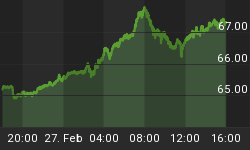How much gold is too much gold if you're a fixed-income investor...?
GOLD DOESN'T pay any income, of course. Which is why retirees and pensioners should hate it.
But since gold cannot go bust - and because its tight supply typically finds strong demand when cash loses value to inflation in the cost-of-living - gold in fact makes the perfect insurance for fixed-income investments like corporate or government bonds. At least, that's what €39 million gold investor Stichting Pensioenfonds Vereenigde Glasfabrieken says.
Crazy name, crazy Dutch fund managers! SPVG holds a massive 13% of its assets in gold, running a total €300m ($400m) to try and ensure a pension for workers past and present at the Schiedam, Netherlands glass manufacturer.
That compares with the typical 5% or 10% allocation which even the friendliest gold-friendly advisors might suggest. And seeing how the average European pension fund holds 2.7% in ALL commodities, never mind just gold, Holland's central bank, De Nederlandsche Bank (DNB), thinks SPVG is nuts. And so - as its regulator - it's given the fund two months to slash its gold position to below 3% of assets.
Good call? Not if you're holding a full 85% of your savings in fixed-income bonds, all denominated in the Euro, and primarily issued by the Dutch or German governments, says SPVG in a statement. Speaking to Investment & Pensions Europe, board member Rob Daamen picks up the story...
"[The gold purchase] was a way to secure the pension fund's assets value. If we win our appeal against the instruction of the DNB [to sell] we can claim compensation for any loss we might incur."
Did you get that? A pension fund obliged by law to defend its members' savings - and doing a very good job of it by all accounts - bought gold to secure its asset value. It's seeking a legal decision that means it can then sue the central bank if selling down those gold holdings means the fund loses value overall.
"The decision to raise the gold allocation [doubling it in October 2009, while selling off the fund's 17% position in equities] was made in the expectation that the stock market's rise would not be sustainable and a considerable downward correction was likely to follow." Which has paid off handsomely regardless of the broader stock-market's continued gains, especially in terms of the faltering Euro which denominates pretty much all of SPVG's other investments.
Zero-yielding gold might look worthless to retirees and pension savers, in short. But if you're entirely reliant on fixed-income debt - as the SPVG has become, matching its liabilities to its assets to make sure it can pay its members their pensions - then it's all-the-more important to insure your savings against inflation, currency loss and default.
At least, that 's what a glass-company's pension fund in Holland believes, holding pretty much only AAA-rated government debt and stateless, debt-free gold bullion as a warranty on its members savings.















